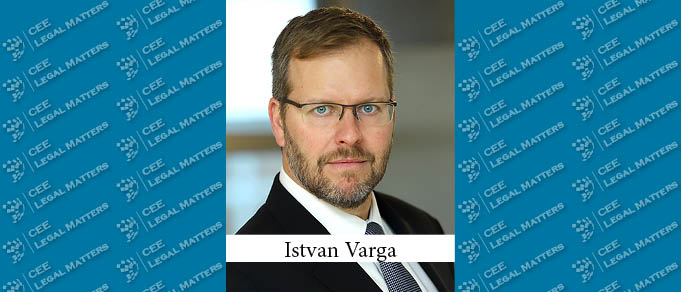There are substantial recent developments in dispute resolution and litigation in Hungary, with some uncertainty about the application of the CJEU’s jurisprudence to domestic litigation, as well as new arbitration rules coming into force, according to Provaris Managing Partner Istvan Varga.
"One of the cutting-edge problems in Hungary is dealing with the jurisprudence of the CJEU and its effective implementation in Hungarian civil procedural law and jurisprudence," Varga says. "A few preliminary rulings have recently been referred back to the Hungarian courts by the CJEU, and these days the Hungarian Supreme Court and also lower courts will have to apply and effectively accommodate those CJEU rulings in pending high profile litigations."
"The problem with that is we have cases where Hungarian courts are split on the issue – with some courts taking the position that a substantial implementation of those CJEU decisions has taken place and other instances considering that they rather seem to have been misapplied and misinterpreted," he continues. "Occasionally, CJEU decisions are implemented in a way that does not entirely mirror the spirit and the nuances of those decisions. In such cases, there should be a retrial, similarly to those cases when the constitutional court annuls a law – this is analogous to what we are facing now."
On top of that, Varga says, "in 2021, the Hungarian legislator introduced a new remedy against the Hungarian Supreme Court’s decisions, referred to as the ‘legal uniformity procedure.’ By means of this remedy, even the Hungarian Supreme Court’s decision can be repealed on the ground that the decision is allegedly deviating from the Hungarian Supreme Court’s previously established case-law." He pointed out the question "whether even CJEU decisions can be ignored, based on the legal uniformity principle, and what the prerequisites are."
"Additionally, there are substantial new developments in the Hungarian truck cartel class litigation, involving a recently announced preliminary ruling in the CJEU’s Volvo case, now to be implemented by the Hungarian Supreme Court," Varga points out, noting that "the Supreme Court’s handling of that new CJEU ruling on issues of a statute of limitations will most probably be another milestone in the fate of pending EU-law related damages actions."
"As for the Hungarian arbitration practice, some modifications of the Rules of Arbitration of the Permanent Arbitration Court attached to the Hungarian Chamber of Commerce and Industry are planned to enter into force in late 2022, digesting experiences piled up over the past five years," he notes. "Among others, the revised rules will include a new provision on standstill. There will also be new rules on dissenting opinions, specifying the procedural framework of their handing down and accessibility." Finally, Varga highlights that a new case management system is envisaged to further strengthen and accelerate the process in the early stage of the arbitral proceedings.
"Ultimately, in litigation, cases are decreasing in number," Varga says. "Though the lasting crisis was expected to increase the caseload, with the enactment of the new Civil Procedure Code some years ago, with which the proceedings have become more formalistic, parties seem to be waiting for more legal certainty, or have been disillusioned by a series of highly formalistic dismissals of actions, which have resulted in a decrease in case numbers." As for arbitration, Varga notes that there is a slight increase in numbers, especially when it comes to institutional arbitration. "We are very close to Vienna and other arbitration hubs in Europe, making it hard to strengthen the standing of Hungary as a preferred place of arbitration but, at the same time, motivating us to maintain a healthy competition," he concludes.



